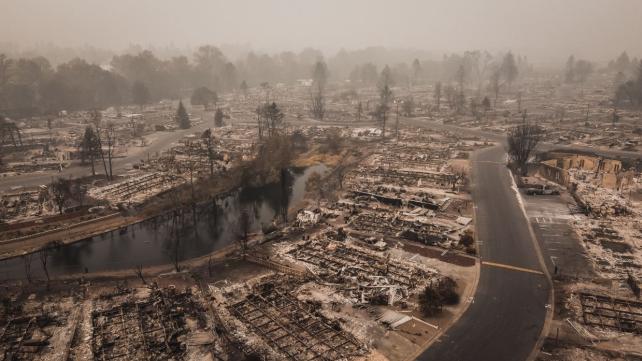
Schadenfreude is a German word that means pleasure derived by someone from another person's misfortune. This week, as deadly wildfires ripped through Los Angeles, social media was rife with it.
The ire was from a number of people, including some troubled by Israel’s genocide of Palestinians for over a year. A number of accounts on Instagram juxtaposed pictures of now-destroyed Gaza next to the aftermath of some of the California wildfires, which have caused billions in damage.
Taking it further, some accounts singled out specific pro-Israel celebrities, lauding the destruction of their homes in the fires as Divine revenge for their pro-genocide statements and stances.
But was it?
In the Quran, Allah does talk about punishing people who do wrong, not just in the Hereafter, but in this life as well. God makes it clear that those who choose to rebel and disobey Allah can and will be punished if they do not change their ways before they die. Sometimes, God punishes a person to wake them up, and guide them to shift course before it’s too late. Other times, Allah lets them continue their wrong until the point of no return, knowing fully that they will not change.
The knowledge of who is being punished and why is solely the preserve of God. He tells the stories of the past punishment to warn us so we behave. He has not given us the tools to make a determination about each disaster if it was a punishment, a test, or merely a result of what we are doing to our climate.
It is not appropriate for a Muslim to assert that a specific natural disaster is a direct judgment from God aimed at a particular group of people today. Only Allah knows for certain. However, it is always wise to reflect on our own moral condition and seek God’s forgiveness.
The Prophets and Messengers of God were all tested and faced tremendous difficulties in their lives. Prophet Muhammad, Allah’s peace be upon him, was tested with torture, injuries, and unimaginable losses. And no one would question their goodness or commitment to God. Nor would they say that their tests were a source of punishment.
On Fridays, Muslims are encouraged to read Surah al-Kahf, the 18th chapter of the Quran. In it is the story of Prophet Moses, God’s peace be upon him, meeting a special servant of God who teaches him a profound lesson about the mysteries behind God’s actions.
This person does things which make no rational sense to Prophet Musa. After he explains why he did what he did at different points in their journey together, everything falls into place, and the broader implications of what has happened makes sense.
The lesson we can learn from this is that when disasters like the California wildfires happen, instead of jumping to declare them a consequence of sins, we should refrain from interpreting Allah’s Will. We do not know if this is a punishment, a warning, or a test for the individual suffering from the tragedy. We also don’t know if tomorrow, Allah will choose to send something similar to us.
Instead, we should use the occasion to reflect on our own reality and ask whether we ourselves are prepared for death or unimaginable losses. We should ask if we are living lives of purpose, serving God and humanity. Are we living our lives on autopilot as animals do, going through the motions of existence? Or are we aiming higher, leaving a legacy that will last beyond this world when we die?
We must also be ready to lend that helping hand to those suffering - regardless of past misdeeds. Their account is with Allah as is ours. What we need to do is focus on aiming higher, forgiving, and doing as we have seen our beloved Prophets and the righteous do throughout time.
At this moment, the most urgent need is to offer whatever assistance we can on the ground or to support those who are working to tame the fires. In the longer term, we must work on policies that prevent disasters of this nature, aiding people in preparing themselves for that eventuality.
Finally, we must remember that in this world, there is a “Sunnah of Allah”. Every action has a consequence, and Allah has put in place processes on this earth. Cause and effect.
When human beings consume ruthlessly, using fossil fuels and other materials that disturb the natural order of things, it is time to consider how we have violated God’s system that has long kept our planet free of wildfires and other devastating disasters.
So let’s not play God. Instead, let us reflect on ourselves, our path, our mission in life, and plan for it.



Comments
Los Angeles fire
This piece of writing is thought-provoking, urging reflection and serving as a warning to those who take pleasure in the misfortunes and sufferings of others. Indeed, Islam condemns this behavior.
Location
Add new comment